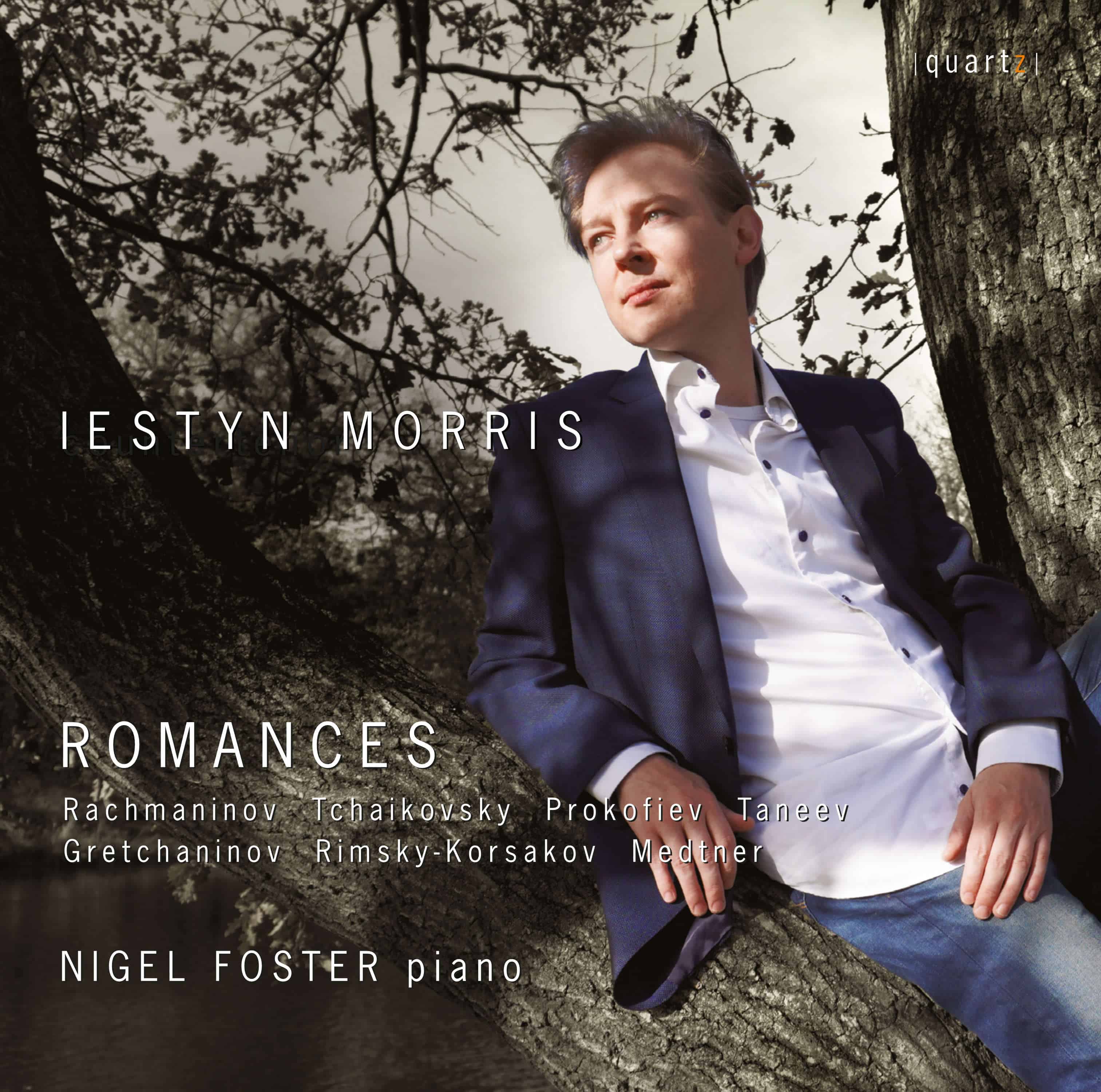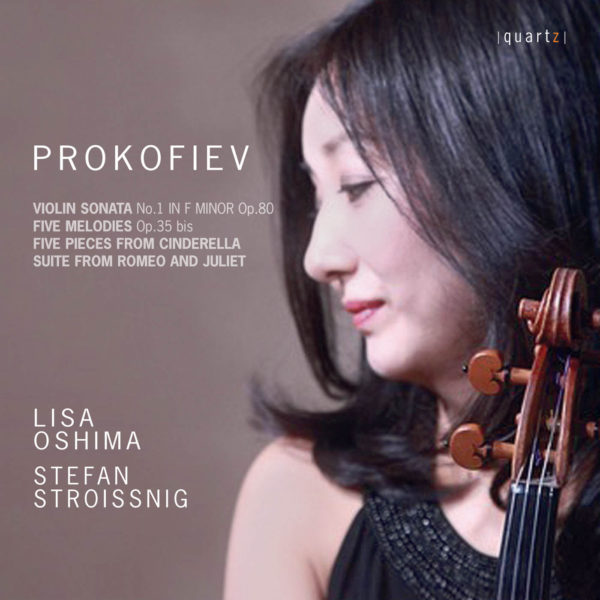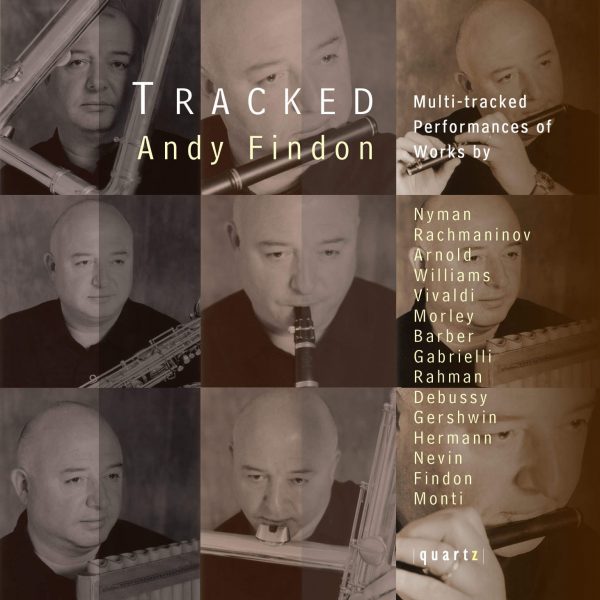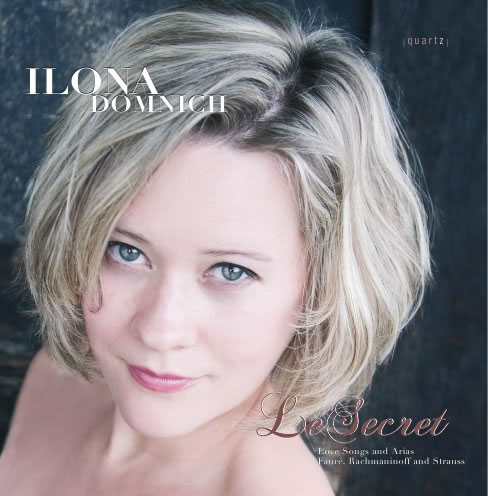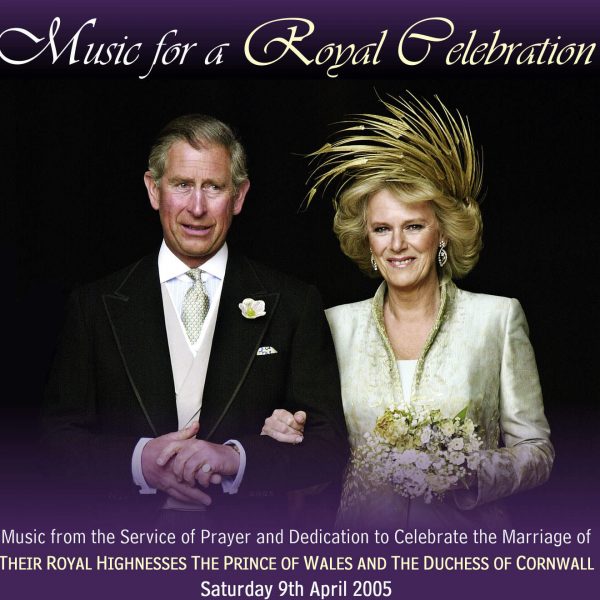Iestyn Morris — Romances
Price range: £7.99 through £14.99
The Romances presented here, are borne out of intense national internal debate, between Western modernity and Eastern nationalism. It is a story of immense personalities, pioneers, revolutionaries, virtuoso pianists, lesser-known heroes and sumptuous revealing poetry that is as relevant today as it was over a century ago. Thanks to the level of fame achieved by their ballets, symphonies and operas, a wide range of composers of Russian origin, who lived between the time of Tchaikovsky and Prokofiev have become household names, which has established them a permanent place in opera houses and concert halls throughout the world. However, often overlooked in the West, is the extraordinary contribution that composers in this period made to the world of song. They did nothing short of giving the Russian language a standing in the international musical landscape, by establishing a new canon of Art Song, the Romance.
About This Recording
The Romances presented here, are borne out of intense national internal debate, between Western modernity and Eastern nationalism. It is a story of immense personalities, pioneers, revolutionaries, virtuoso pianists, lesser-known heroes and sumptuous revealing poetry that is as relevant today as it was over a century ago.
Thanks to the level of fame achieved by their ballets, symphonies and operas, a wide range of composers of Russian origin, who lived between the time of Tchaikovsky and Prokofiev have become household names, which has established them a permanent place in opera houses and concert halls throughout the world. However, often overlooked in the West, is the extraordinary contribution that composers in this period made to the world of song. They did nothing short of giving the Russian language a standing in the international musical landscape, by establishing a new canon of Art Song,
the Romance.
Composers of Romances found, in this form, a way of expressing all aspects of the human condition, from torturous self-examination to effervescent, unbridled joy. Compositional styles vary greatly from the most intimate, minimalist vignettes, to lengthy, visceral eruditions that knock on the doors of opera. The Romance also offers a window into the soul, that sets it apart from Art Song traditions of other nations. It gives performers and audiences alike, the opportunity to experience a profound emotional connection, with a directness (sometimes alarmingly so, to Western sensibilities) that is completely devoid of self-consciousness, or indeed any hint of irony or artifice.
The isolation of a global pandemic presented an ideal time to explore the rich music and poetry of Romance; repertoire I am rarely asked to perform, but has been a personal passion throughout my career. Although unusual for the countertenor, as with all Lieder, Mélodie or song from any other tradition, Romance is available to all. The universal themes of longing, loss, love and the celebration of life are so compelling, that this project is as much a showcase for the phenomenal depth of repertoire, as it is about presenting new interpretations with a different voice.
In the 19th century, composers beyond Europe’s eastern borders were remarkably international and outward-looking in their exploration of source material. Literary giants, such as Pushkin and Tolstoy were of course celebrated, but composers also found the sentiments they wanted to express in the poetry of England, France, Germany, the Habsburg-Bohemian lands and Poland. This was largely driven by the rapid expansion of the railway network across Europe, which afforded the East mass access to art, writing and music, flowing in from the West. However it also lead to a cultural crisis of identity.
Russia’s international standing, politically, was greatly diminished, following years of a disastrous foreign policy of geographic expansion and, after widespread industrialisation, was also in debt. It was in desperate need of sweeping reform, which lead to intense self-examination. This internal debate hinged on whether it would be better for Russia to simply become European (lest it be left behind), versus a growing nationalist voice that argued reform and progress should come from within and forge its own path, rather than imitate others.
There was even a sense that the future of the Russian language itself was under threat: As with all educated classes, the Tzar and Tzarina would use French to converse even in private, which was quite literally the Lingua Franca, stripping the Russian language of its intellectual standing.
Whilst Mikhail Glinka has to be acknowledged as the grandfather of Russian Romance, arguably, few did more than Tchaikovsky to establish a place for the Russian language in the international forum of Art Song, hitherto dominated by French Mélodie and German Lieder.
Compositionally, Tchaikovsky was always considered a bit of an outsider; educated in the Western-oriented St. Petersburg conservatoire, he strove to write works that would transcend barriers and be accepted in the West, whilst maintaining a distinctive authentic voice. He was therefore initially considered too Western (European in style) to be accepted by a contemporary group of composers who were active in St. Petersburg known as ‘The Five’ or ‘The Mighty Handful’, who came together (outside and in reaction to the conservatoire) to forge a unique authentic style, rooted in Nationalism. The clouds scatter Op.42 No.3 and My spoilt darling Op.42 No.4 by Rimsky- Korsakov (of ‘The Five’), with their expansive nostalgia and exotic folk melodies, are steeped in this philosophy. On the other hand, Tchaikovsky also found he was not always accepted in the West either, often being dismissed as lacking intellect; offering nothing more than “crude exoticism”.
Ignoring his critics from East and West, and portraying great self-confidence in his early career, Tchaikovsky took on the challenge of championing the Russian
language head-on. In his Op.6 (1869), he published six songs giving Russian poets equal billing alongside German poetry of Hartmann, Heine and Goethe. However, he published these in translation. Members of ‘The Five’, Cui and Balakirev, tried to discredit this set of songs, but to no avail. None but the lonely heart Op.6 No.6 became an instant hit. Set in translation by Lev Mey from the original Goethe “Lied der Mignon” (Wilhem Meister book 4 ch.11), its success made it hitherto difficult to sing these Op.6 songs on the concert platform in the original German, thus reinforcing Russian as an Art Song language. In the latter half of the C19th, the Romance would find its place in music salons across Europe, being promoted by famous singers such as Pauline Viardot; firmly establishing itself as a part of the international musical landscape.
Sergei Rachmaninov benefited from the scene in Moscow, where he lived near the conservatoire. As a composer he was influenced by both Rimsky-Korsakov and Tchaikovsky; embracing both philosophies, which is plain to see in his Op.14. In Love’s Flame Op.14 No.10, Rachmaninov seized upon a set of ‘Oriental’ poetry by Minsky (1880), something which would have favoured Rimsky-Korsakov’s nationalistic sentiment; he skilfully builds up an atmosphere of ‘nega’ (erotic yearning) with and insistent pulse, from start to finish. He took pride in finding texts that had been set by no-one else, with only very notable exceptions: Do not believe, my friend Op.14 No.7, takes a popular lyric, by A.K. Tolstoy, that had already been set in a hauntingly plangent manner by Tchaikovsky in his Op.6. Rachmaninov responds to the self-assured, reasoned nature of the poem with an almost pig-headed, forthright statement. Its core musical idea of the tide rushing back overflows into a concerto in miniature, which is a device he surely borrowed from Tchaikovsky’s Does the day reign Op.47 No.6.
A.K. Tolstoy was an enduring source of texts in Tchaikovsky’s output. Conducting a 12 year affair before marrying in 1851, much of his verse in this period was devoted to the philosophy of love and infidelity. Tchaikovsky’s A tear trembles Op.6 No.4 takes two verses of Tolstoy’s five verse poem. Whilst he claims to see a bigger picture of boundless love (of God, into which all will be embraced), what we see is her hurt, in the image of a jealous tear, and are left asking ourselves how convincing is this cold philosophy in the face of genuine human emotion.
What Rachmaninov knew of this lengthy affair is unknown, but he was struck by an intimate occasional verse from A.K. Tolstoy to his lover (published in a literary journal of 1858) and drew out its inescapably heart-breaking text in The world would see thee smile Op.14 No.7. Leaving the rising vocal line hanging, Rachmaninov’s portrayal of unattainable resolution is perhaps an interpretation where she has left the mortal coil and will be forever out of reach.
Nature was also a great source of inspiration to Rachmaninov. In Moscow, after long months of winter, spring comes as a violent liberation. Meltwater from fields is not so much seen but rather heard. In Spring Waters Op.14 No.11, the word “schumjat” at the end of the second line, literally means ‘to make noise’ (in this sense ‘proclaiming’ the arrival of spring). Rachmaninov, famed for his exceptionally large hands, was known as one of the finest virtuoso pianists
of his age. His fiendishly difficult accompaniment trippingly depicts this moment of meltwater rushing under the surface ice and is a celebration of life; a moment which would traditionally be met by dancing in the streets, preferably barefoot.
The underlying mystery of Morning Op.4 No.2 is that no-one knows who the poet was. Sources actually cannot agree on whether M.L. Janov was in fact female (Maria Yanova). The fact that this song incorporates both the female image of the dawn “zarja” descending to Earth in the first half of the song, with the tentative chromatic rising phrase of the masculine day “Djen” in the second, only adds to this intrigue.
A decade later, Rachmaninov championed another female poet in Lilacs Op.21 No.5. Ekaterina Beketova wrote children’s stories, lyrics about nature and produced translations from five languages. The images she depicts, on a walk in the cool of the morning, centre around a Russian superstition that it is good luck to find a five-petalled lilac bloom. With a touch of melancholy, Rachmaninov conjures the idea of a walk with masterful economy of writing, as the narrator goes in pursuit of “shchastje”, which in Russian has the double meaning of ‘good luck’, as well as ‘happiness’.
Rachmaninov was also not to shy away from political ideology. Senyon Nadson was the son of a baptised Jew and a Russian Orthodox mother, whose poetry appealed to the radical intelligentsia of the turbulent 1880s, which saw the rapid spread of Marxist ideas, the rise of revolutionary populism as well as increased persecution of jews. Despite dying tragically young, Nadson’s poetry became a bestseller in his lifetime. Rachmaninov seized upon a set of fragments of text, feverishly written in the two years before the poet’s death. The central tone in Tis Time! Op.14 No.12, is predominantly one of suffering and struggle. It calls for a ‘Prophet’ to show the way – an ironic sentiment in the light of history, but its sincerity is a call to arms and hence it is unsurprising that this song was largely forgotten in Soviet Russia.
Now we come to some lesser-known composers, who deserve far more recognition. Sergei Taneev was a former tutor (and distant relative) of Rachmaninov, so it can be assumed they had intimate knowledge of each other’s work. In a direct comparison, we can see two settings of the same poem: In the early 1890s Konstantin Balmont translated Percy Bysshe Shelley’s ‘The Isle’, describing this example of English romanticism as a “tender cameo”. To Shelley’s descriptive imagery, Balmont added a slumbering final line which imbues the whole poem with a more emotive, dreamlike quality. Rachmaninov published his setting almost immediately as The Little Island Op.14 No.2, and it endures as the more famous treatment of the text. Taneev, however, waited a further ten years to publish his Op.17 No.1 and it can be argued that the former tutor is more successful at invoking this dreamy closing mood with a meditative, gently rippling final passage from the line “here no storm rages”.
Another former pupil of Taneev in Moscow was Alexander Gretchaninov. He moved to St Petersburg in 1890, so also studied orchestration and composition with Rimsky-Korsakov, who recognised his prodigious talent and supported him financially. They remained firm friends and Rimsky-Korsakov’s work heavily informed that of his pupil; he even conducted several premieres of Gretchaninov’s symphonies. Only achieving international recognition for his instrumental writing, he was a formidable and popular writer of song (his settings of Baudelaire are particularly worth exploring). In the late 1890s he began producing serious works for the Orthodox Church in the form of large choral settings of the liturgy, bringing a more serious note to his secular works. Op.15 consists of just two songs – a traditional folk song (“Evening Bells”) and the emphatic setting of P. Kovalevsky’s Death Op.15 No.2, which is as uncompromising as it sounds!
Taneev also taught Nicolai Medtner, convincing him to dispense with a performing career as a concert pianist, in favour of composition. Not sharing Tchaikovsky’s need to set texts in translation, Medtner spent much of his early career dedicating whole opuses to German poets. For this reason, the three examples from Op.15 (settings of Goethe) are the only songs not to be sung in Russian. With the world heading inexorably towards the horror of WWI, however, he turned to Pushkin for Op.29. The Rose (No.6) uses the imagery of flowers to deal with the passing years and the extraordinary Invocation (No.7) summons unnatural forces to call to a lover beyond the grave.
In the first half of the C20th, interest in exploration of folk song was universal. In 1944 Sergei Prokofiev published Op.104 (a set of twelve Russian folk songs), which deserves to be far better known. Unlike the universal nature of folk song in most cultures, Russian folk song has the interesting quality of being specific to gender. Folk song sung by men (who would be called up to go to war or had
to leave home to make a living) tend to be full of nostalgia and longing for home. On the other hand, folk songs sung by women, tend to complain about how hard life is or sing longingly for their loved one (who is invariably far away). All the songs in Op.104 are arrangements of folk songs traditionally sung by women, but with kind permission from the composer’s grandson, texts have been altered where necessary, so that the voice is grammatically from a male viewpoint. It is the first time these songs have been recorded with this interpretation. Mostly this treatment has little effect on the overall sentiment of the song, however, sometimes, such as in the instance of Katerina (No.11), the suggestion that the eponymous heroine should leave her cares behind and go for a walk with this male companion, takes on an invigorating new meaning!
This project is grateful to the Oleg Prokofiev Trust, for its invaluable support.
Track Listing
- Morning, Op. 4, No. 2
- The Little Island, Op. 17, No. 1
- Lilacs, Op. 21, No. 5
- Dream, Op. 104, No. 7
- The Little Island, Op. 14, No. 2
- Spring Waters, Op. 14, No. 11
- Love's Flame, Op. 14, No. 10
- Katerina, Op. 104, No. 4
- My spoilt darling, Op. 42, No. 4
- A tear trembles, Op. 6, No. 4
- Do not believe, my friend, Op. 14, No. 7
- Does the day reign, Op. 47, No. 6
- The clouds scatter, Op. 42, No. 3
- Beyond the woods, Op. 104, No. 8
- None but the lonely heart, Op. 6, No. 6
- My beloved is gone, Op. 104, No. 7
- Why?, Op. 6, No. 5
- The world would see thee smile, Op. 14, No. 6
- The rose, Op. 29, No. 6
- Invocation, Op. 29, No. 7
- Aus 'Wilhelm Meister', Op. 15, No. 2
- Gleich und gleich, Op. 15, No. 11
- Wandrers Nachtlied I, Op. 15, No. 1
- Death, Op. 15, No. 2
- Tis Time!, Op. 14, No. 12
Sergei Rachmaninov
Sergei Taneev
Sergei Rachmaninov
Sergei Prokofiev
Sergei Rachmaninov
Sergei Rachmaninov
Sergei Rachmaninov
Sergei Prokofiev
Nikolai Rimsky-Korsakov
Piotr Ilyich Tchaikovsky
Sergei Rachmaninov
Piotr Ilyich Tchaikovsky
Nikolai Rimsky-Korsakov
Sergei Prokofiev
Piotr Ilyich Tchaikovsky
Sergei Prokofiev
Piotr Ilyich Tchaikovsky
Sergei Rachmaninov
Nikolai Medtner
Nikolai Medtner
Nikolai Medtner
Nikolai Medtner
Nikolai Medtner
Alexandre Gretchaninov
Sergei Rachmaninov
